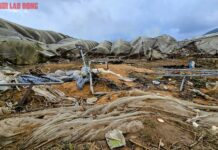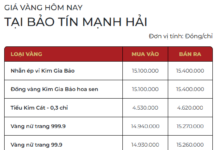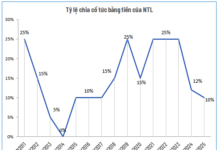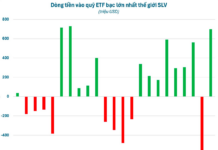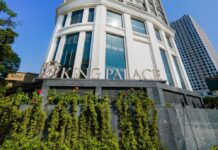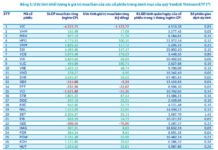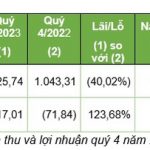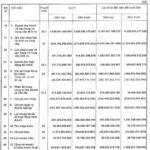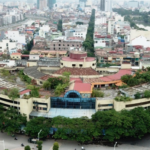“Housing Scams on the Rise: Protect Yourself from Real Estate Fraud”
On property buying and selling websites, it’s not difficult to come across enticing advertisements such as “Urgent sale, need money fast…”, “Emigrating, quick sale…”, or “Bankrupt, selling at a loss…”. Anyone who is not cautious, well-informed, or tempted by these deals could easily become a target for fraudulent individuals or dishonest real estate companies.
Burdened by Debt: A Victim’s Story
Unlike those who are aware of the tricks played by these “chicken herders” in provincial real estate, Ms. H. (from Ho Chi Minh City) fell victim to their scheme. In early May 2023, she was lured by two agents from Dai Dien Khang Company, named Quan and Nhu Phuong, to view a project in Phuoc Tan town, Long Thanh district, Dong Nai province (a fictitious address, according to our investigation). Upon arrival, she had no idea where she was, but the company organized a lucky draw for her, and she won a Honda SH scooter. “They tempted me to pay 200 million VND for a 300 million VND discount on the land purchase. The company also introduced a woman named Kim Thanh, who would buy the land from me on the condition that I had a red book [land use right certificate]. Believing that buying land with a red book would result in immediate profit, I agreed to buy a plot in An Vien for 2.59 billion VND, which Ms. Kim Thanh promised to buy back for 2.8 billion VND,” Ms. H. recounted.

Events selling land plots are organized in large conference centers and hotels to trap buyers. |
When Ms. H. mentioned not having enough money, Ms. Nhu introduced her to Vietnam International Bank (VIB) on Lac Long Quan Street, District 11, Ho Chi Minh City, for a loan. However, due to her low pension, she did not meet the requirements for a 2.5 billion VND loan and had to ask her son to mortgage their house in Binh Thanh District. “I thought that I could sell it to Ms. Kim Thanh and make a 300 million VND profit. But after the bank disbursed the loan, and the money was transferred to the account of the director of Dai Dien Khang Company, Mr. Luong Quoc An, the company informed me two months later that Ms. Kim Thanh had canceled the reservation. Their promise of introducing a buyer and offering a 440 million VND discount after full payment also never materialized,” Ms. H. explained.
At this point, Ms. H. still didn’t know where the land she purchased was located. She visited the company’s transaction offices at 7 Nguyen Van Vinh and 12A Ba Vi, Ward 4, Tan Binh District, only to find that both branches had closed and vacated the premises. Subsequently, she tried to contact the individuals who had made various promises to her, but they were either unreachable or unresponsive.
As of now, Ms. H. is still burdened with a 2.5 billion VND debt. Her family home is mortgaged to the bank, and each month, they struggle to pay the 40 million VND installment, in addition to her meager pension of just over 5 million VND.
As of August 5, Ms. H. shared that, after more than a year of purchasing the land, she finally managed to get in touch with Mr. Luong Quoc An. He promised to resolve the issue but provided no specifics before hanging up. Ms. H. is now desperate to sell the land to repay her debt to the bank.
Our investigation revealed that Dai Dien Khang Real Estate Joint Stock Company, with Mr. Luong Quoc An as its legal representative, is headquartered at 12A Ba Vi, Ward 4, Tan Binh District.
A Persistent Problem
Explaining why “chicken herding” and real estate fraud persist year after year, despite authorities handling numerous cases, Mr. Tran Khanh Quang, CEO of Viet An Hoa Real Estate Company, pointed out that the Vietnamese real estate market has long had its issues. While investment project procedures are stringent, property buying and selling transactions are relatively simple, requiring only the agreement of both parties to notarize the deal. In some cases, buyers don’t even know the location of the land they’re purchasing. This loophole is exploited by dishonest and fraudulent individuals and companies.
Additionally, buyers are partly to blame for being too lax when investing large sums of money in real estate without thoroughly verifying the necessary details and solely relying on the advice of consultants or the enticing words of certain entities. For instance, in Ms. H.’s case, she signed the land purchase contract and transferred the money at the bank without knowing the location of the plot she was buying until she received the red book. “Ms. H. had the agency, awareness, and capacity to discern right from wrong. Moreover, she asked her son to sign the bank loan contract, so it’s hard to believe that she acted without careful thought,” Mr. Quang analyzed.
According to Mr. Quang, to minimize such situations, managing agencies must supervise real estate businesses through a clear legal framework and enable buyers to easily verify all information related to the property they intend to purchase. To achieve this, the state needs to establish a real estate market management system, which Vietnam currently lacks, leaving buyers confused and vulnerable. “For now, if there were a public service that handled all legal procedures related to real estate, ensuring peace of mind for buyers and sellers, I believe the Vietnamese real estate market would become healthier, reducing the chaotic and disorderly transactions prevalent today,” Mr. Quang stated.
Attorney Nguyen Phuong Lien, from SENLAW Law Firm, noted that real estate fraud in buying and selling houses and land is prevalent, and the tactics are increasingly sophisticated. Fraudsters operate under the guise of brokerage or real estate companies, employing hundreds of staff and organizing large-scale events to showcase grandiose projects to trap buyers. Since real estate is a high-value asset, falling into their trap can result in significant losses for victims. “Common tactics include false advertising; offering valuable gifts or attractive discounts to lure buyers; using fake buyers or ‘decoys’ to create a sense of competition and pressure on the buyer; staging multiple buyers to drive up prices; exaggerating investment profits; and pressuring the ‘prey’ to make quick decisions to avoid missing out,” Attorney Lien elaborated.
According to the attorney, the Real Estate Business Law of 2023, which took effect on August 1, clearly prohibits certain acts in real estate business, including: engaging in real estate business without meeting the required conditions; falsifying documents or deliberately misrepresenting real estate or real estate project information; failing to disclose information about real estate or real estate projects in accordance with the law; fraud, deception, or misrepresentation in real estate business; and failing to fulfill or partially fulfilling financial obligations to the state. Notably, the law also prohibits the “use of a real estate brokerage certificate in a manner contrary to the provisions of the real estate business law.” These regulations are expected to curb the tricks of these “chicken herders.”
|
Impact on Legitimate Businesses The director of a real estate brokerage company in the suburbs shared that his company operates honestly, but they are significantly impacted by dishonest companies’ tactics. He provided examples of common tricks used by fraudulent companies, such as offering attractive promotions to exploit buyers’ greed or promising to resell properties at higher prices, only to renege later. Some companies advertise extremely low prices for houses and land, but in reality, this only applies to the initial deposit, with the actual contract price being much higher. Once the transaction is completed, these entities will try to erase their tracks and deny any wrongdoing. |
|
Precautions When Buying Real Estate |
Article and photos: Son Nhung
Surging Profits from Associated Joint Venture, Nam Long (NLG) Reports After-Tax Profit of over 800 billion VND in 2023
According to NLG, the primary revenue for the entire year came from the sale of houses and apartments, from two major projects Izumi and Southgate. Additionally, in the third quarter, NLG also had the Mizuki project, which was a significant handover project.

